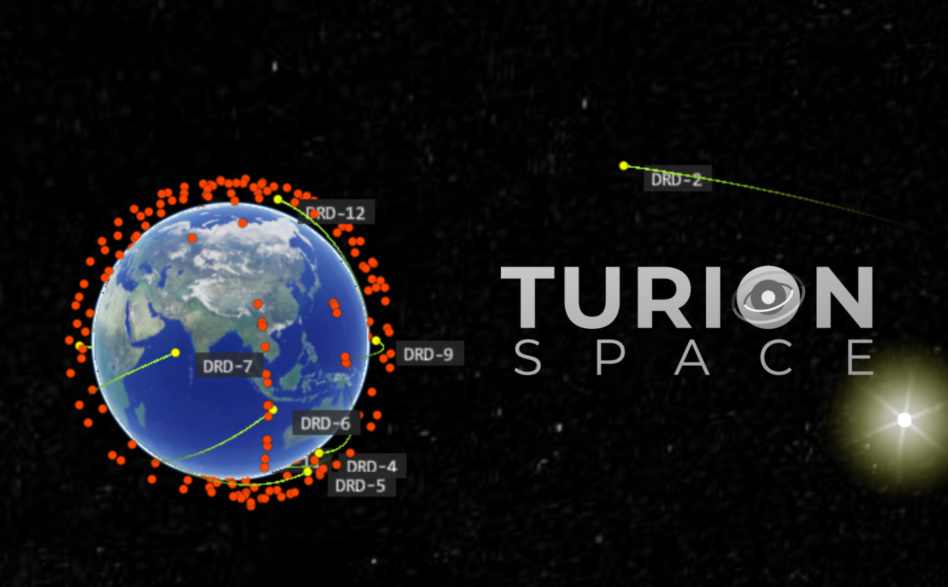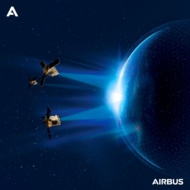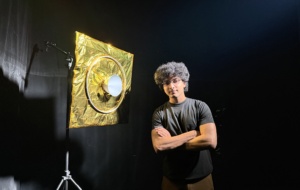Turion Space has closed a $4.7M seed round of funding. The Irvine, CA-based startup is focused on satellite servicing and space debris removal. Timely raise much?
“If we lose the ability to operate in LEO because we let the debris problem get out of control, the crazy growth in space technologies may end up stagnating,” Turion cofounder/CEO Ryan Westerdahl told Payload.
Reinforced Ventures, Soma Capital, Forward VC, Gaingels, Imagination VC, S2 Capital, FoundersX Ventures, and other investors participated in the round. Turion’s first mission—Droid-1—is fully funded, Westerdahl said. FYI: Turion calls its spacecraft Droids, and has filed a trademark for the name.
Meet the Droid family…
- Droid-1 will launch ~Oct. 2022. The goal is to reach a stable orbit, send over-the-air software updates, and test equipment. The subscale demo craft won’t have a docking mechanism.
- Droid-2, targeted for 2023, will be more functional. Turion plans to use Droid-2’s robo-arm to dock with Droid-1, deorbit, and demonstrate a fully functioning debris removal mechanism. Dogfooding in space!
- Droid-3, slated for 2024, will have a proprietary thruster and other bells and whistles. Turion plans to build and launch a batch of Droid-3s.
Sign of the times: Turion recently graduated from Y Combinator’s S21 batch with four other space startups. The camaraderie “made life easier,” Westerdahl said. “We could talk to other startups about aerospace-specific struggles.”
The accelerator helped Turion refine its business plan, which could see the space startup making money 2–3 years after incorporation. “Our secret sauce is speed,” Westerdahl said.
The sauce recipe: Droid-1 will have sensing payloads that Turion aims to rent out for space-to-space use cases (like situational awareness). After taking out the Droid-1 trash, Droid-2 will also be open for business. The Droid-3 generation is when volume production (relatively speaking) and scaled-up commercial services come into play.
First principles: Turion is optimizing for “Delta-V per dollar spent” on Droid design/development. Whether a Droid is deorbiting a dead satellite or shuttling a spent upper stage, all engineering and financial roads lead back to the Delta-V/$ metric, Westerdahl said.
- Turion plans to charge based on how much propellant is used for a job. Interested parties can input a space asset, select a service, and get a theoretical quote on Turion’s dashboard.
- Westerdahl places an emphasis on transparent, upfront pricing, taking a page from SpaceX, his former employer.
Recently, iRocket and Turion announced a launch services deal. There’s no guarantee the launches happen or that Droid-3 sees the light of day. That’s your bear case.
The bull case? By staying lean and moving rapidly—on product iteration, operating tempo, and commercialization—Turion bets it can get a leg up in debris removal. The space junk issue isn’t going away anytime soon, and the market’s just starting to take shape.




